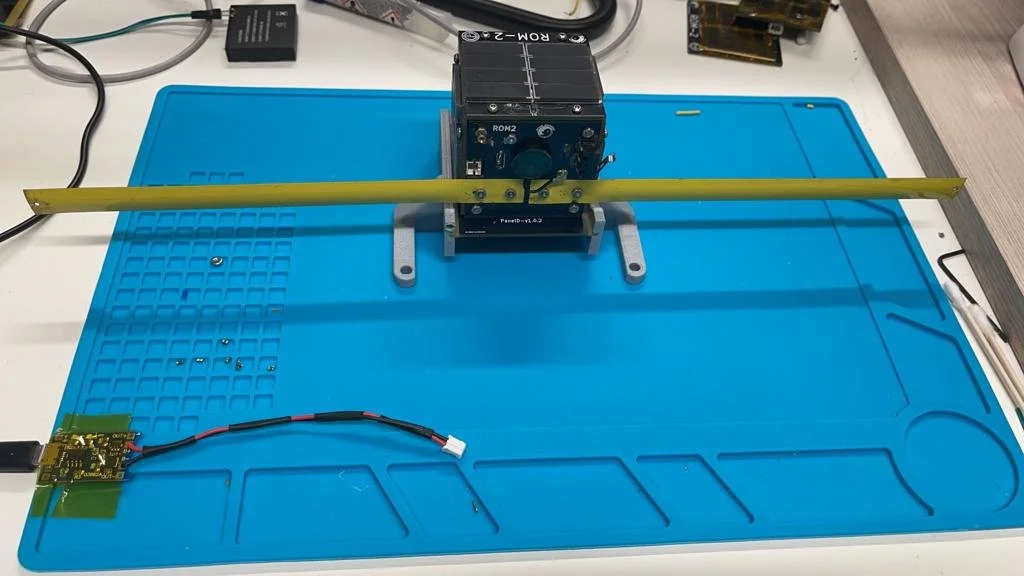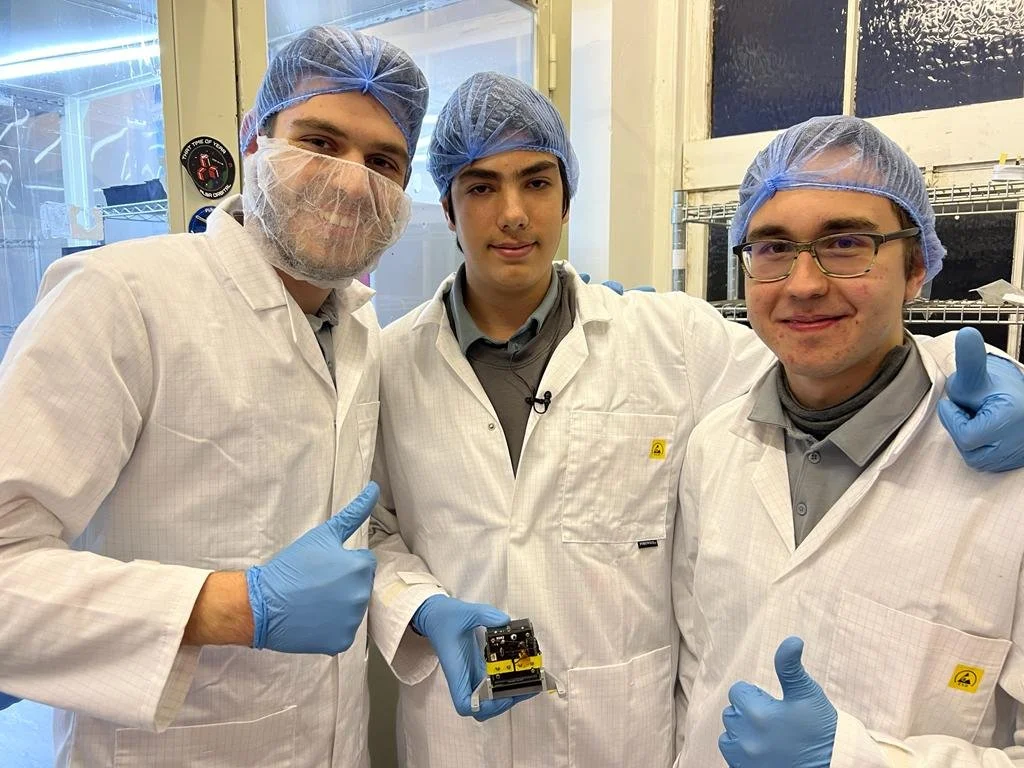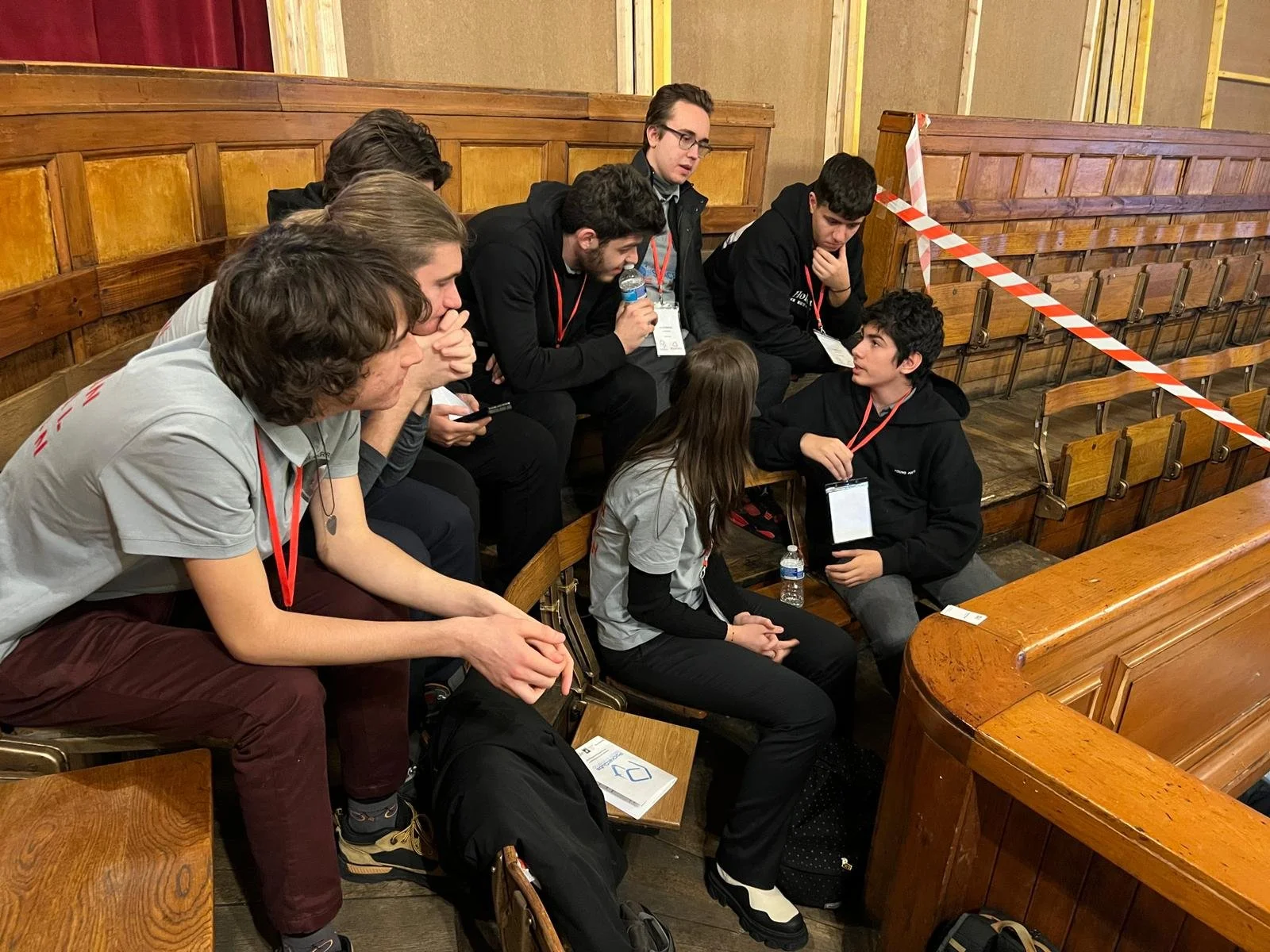ROMSPACE: High School students sending satellites to space!
ROMSPACE, a pioneering venture in the realm of space exploration technology, stands as a testament to human ingenuity and the relentless pursuit of innovation beyond Earth's atmosphere.
ROMSPACE is a team formed of nine students from the International Computing High school of Bucharest, starting their PocketQube journey in 2019 and have since built and launched two satellites into orbit. ROM-2 and ROM-3 are Romania’s second and third satellites respectively and the first built by students in the country. The first association of their kind in the country, it took the team only a year to design, build and launch their first PocketQube into orbit!
‘PocketQubes’ are the smallest commercial class of satellites, no bigger than a Rubik’s cube measuring at 5cm per unit or ‘p’. These satellites are dramatically reducing launch costs, and opening access to space for a plethora of new space based applications.
ROMSPACE set out to prove that students of such a young age could not only learn about and understand the world of PocketQubes, but in fact design, build and launch their own satellites. Doing just that, it also demonstrates just how accessible space is through PocketQubes, as they drastically lower build time and most importantly extremely cost-efficient. The students are currently focusing on developing small amateur independent satellites with a target of forming a future constellation of PocketQubes. This constellation would be used to help combat pressing issues such as illegal deforestation, agriculture and climate change.
Following the success of ROMSPACE and their missions, it has launched a PocketQube revolution in Romania. There are now universities following in the high school student’s footsteps, building satellites of their own. On top of this, there is now a PocketQube building competition (Qube2Space) held in Bucharest, where the most recent event garnered over one-hundred participants, with the top three teams having their PocketQube launched into orbit!
“I’m extremely proud of the team and the progress we have made over the past four years”, ROMSPACE team leader Filip Buscu said. “Going from students with an idea to turning it into a reality, launching two of our very own satellites and telling our story to many others at conferences is an amazing feeling. Knowing we inspire other students, older and younger, to do the same gives us great pleasure and we hope to keep on helping and encouraging others to get involved within the world of PocketQubes.”
their Pocketqube story
Originally the students set out on a mission to build a Tubesat, however due to circumstances out of their control, they were unable to launch this. Nonetheless, the students were still extremely determined to send their very own satellite to space and after some research they came across PocketQubes. After reaching out to Alba Orbital and discovering just how accessible space is through PocketQubes, the team set to work straight away with their end goal finally in sight. In just over a year, ROMSPACE had designed and built their satellite, ROM-2. ROM-2 successfully deployed from SpaceX’s Transporter-8 in June of 2023, meaning just a year after the idea for a PocketQube came about, a group of nine high school students had designed, built and launched their very own satellite to space.
About RomSpace
As they are passionate about innovation in science, technology and space development, the 9 high school students who make up the RomSpace team wanted to pursue their dreams by developing a truly ambitious project - ROM-2. The first mission of its type in Romania, ROM-2 aims to put its home country on the map when it comes to space exploration. Regarding future objectives, the team plans on continuously improving its projects, so as to one day launch remarkably more complex spacecraft which could potentially travel beyond the borders of Earth's orbit.
For more information, please visit the mission’s website: https://rom-space.ro/












